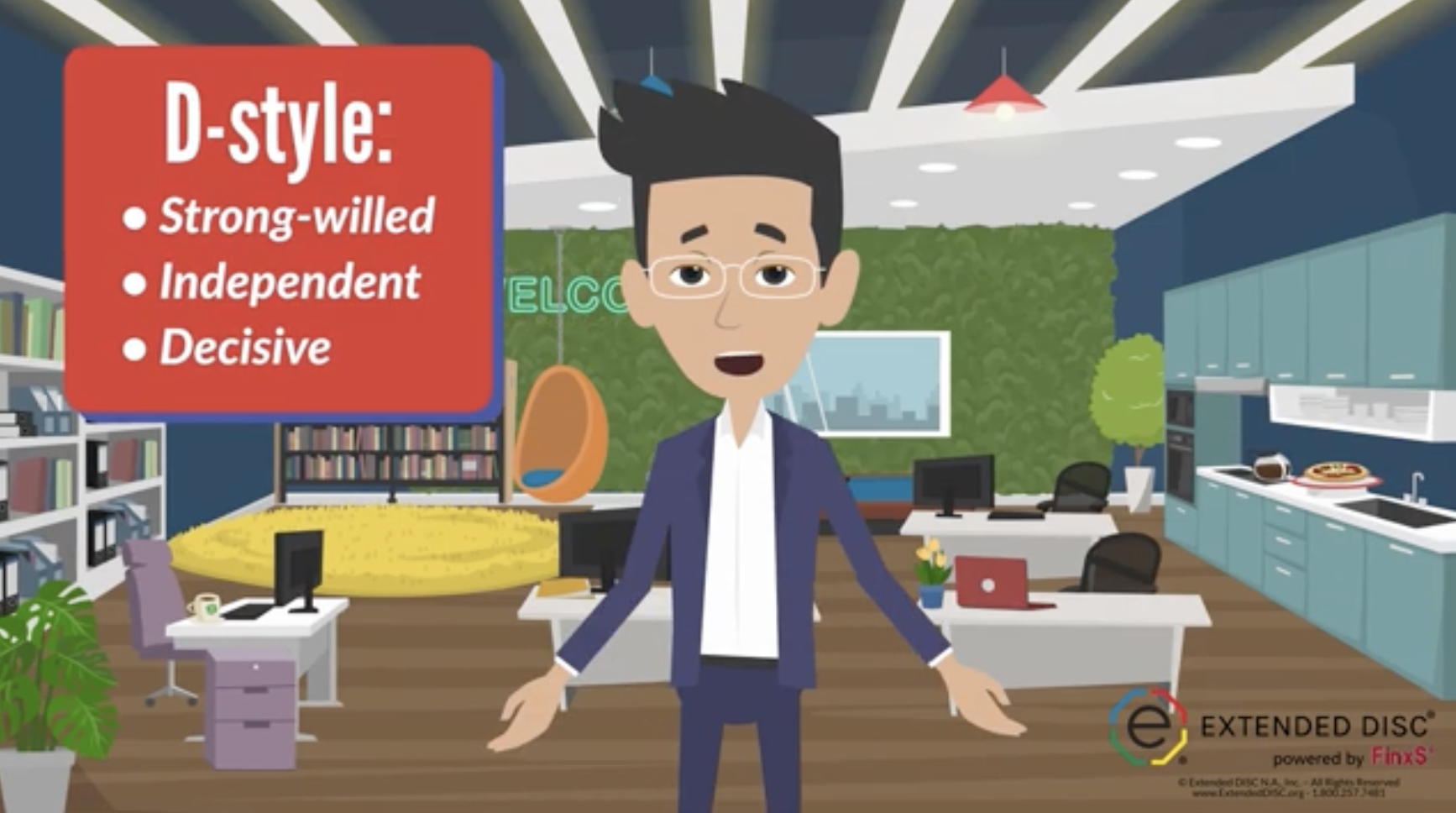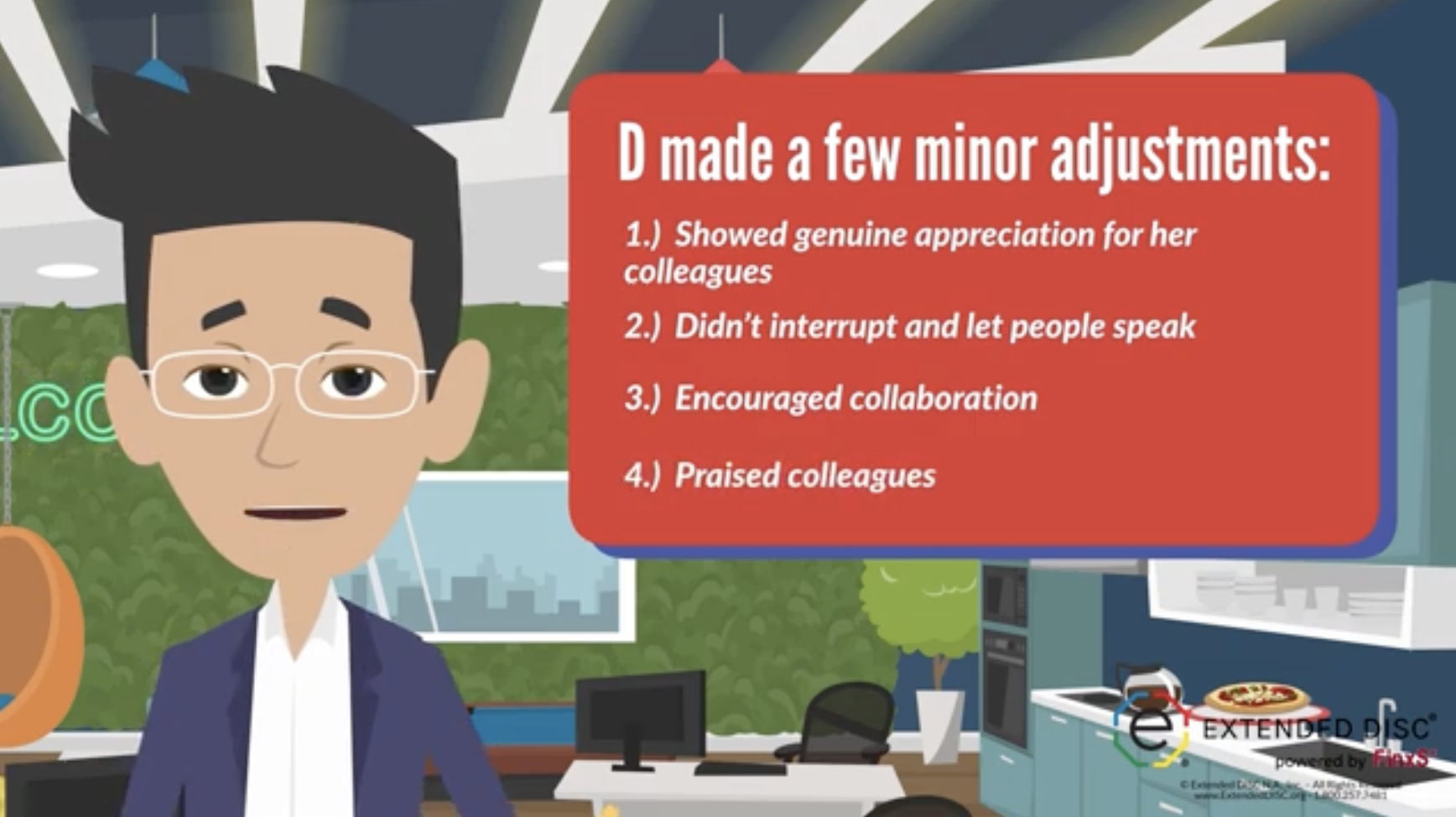D-styles, as with other styles, have preferred ways of doing things. So, when should you focus on the strengths of your style and when should you adjust to be more effective?
Teamwork
Your failures and successes often stem from how well your team performs. A common roadblock for teams comes from different ways team members prefer to communicate and do things. Successful teams have members who are able to share each other's strengths, as well as support each other's development areas.
DISC provides you with a supportive, starting point by providing insight into your behavioral style and the styles of your team members. This enables you to present your best self in daily interactions, and foster a productive work environment. Most importantly, DISC gives supportive feedback on how to modify your style to be more effective.
Let's start with D-styles.
D-style: Dominance
 As a D-style, you tend to come across as strong-willed, independent, and decisive. You are more comfortable when you are in charge and getting things done. You come across as confident and self-assured, but also blunt and domineering.
As a D-style, you tend to come across as strong-willed, independent, and decisive. You are more comfortable when you are in charge and getting things done. You come across as confident and self-assured, but also blunt and domineering.
You prefer communication to be uni-directional; we listen while you speak. D-styles express their own opinions as fact; meaning their opinions need no further discussion. Your interactions may feel like a competition for the rest of us. Since you want to move and complete tasks quickly, you have a tendency to interrupt often and not ask for input from others.
Strengths tend to be easier, more natural, and require less energy from you. Your behavioral strengths include your comfort with making decisions, initiating change, and showing direction. Development areas tend to feel more challenging, less comfortable and take more energy from you. Areas that you may need to develop include focusing away from you, bluntness, and listening.
D-style team members

As a team member, you are the team's catalyst; constantly moving us forward. Tough decisions are more comfortable for you, but you may forget to include us in your thoughts and decisions. Teamwork can challenge your sense of independence unless there is a clear actionable goal and you are able to delegate and lead.
Meetings need to focus on getting things done and moving along briskly. You may brush past your team members' well thought-out ideas; preferring your own opinion. Your priorities can take priority over the rest of us and the team.
Modifications for the D-style
 As a D-style, you can communicate more effectively by making brief, temporary adjustments. Yes, it may take you outside your comfort zone, but it can avoid mutual frustrations and get you what you need much faster!
As a D-style, you can communicate more effectively by making brief, temporary adjustments. Yes, it may take you outside your comfort zone, but it can avoid mutual frustrations and get you what you need much faster!
It may seem more productive to avoid chitchat and move things along because you have the answers and a clear vision of what needs to be done. However, it can be perceived as rude and impatient because they see you as cutting people off and discouraging discussion.
Instead, take a moment to listen without interruption. You can find opportunities to provide positive feedback and show genuine appreciation for your colleagues' contributions and opinions. There are going to be times for fast decision-making and quick action. It is equally important to recognize when your team members feel valued and heard, it benefits everyone.
You should continue to use the strengths of your style. Behavioral modifications are not about changing who you are. It comes down to situational self-awareness; knowing when your style fits and when you need to make those brief, effective adjustments so that you and your team can be successful!
